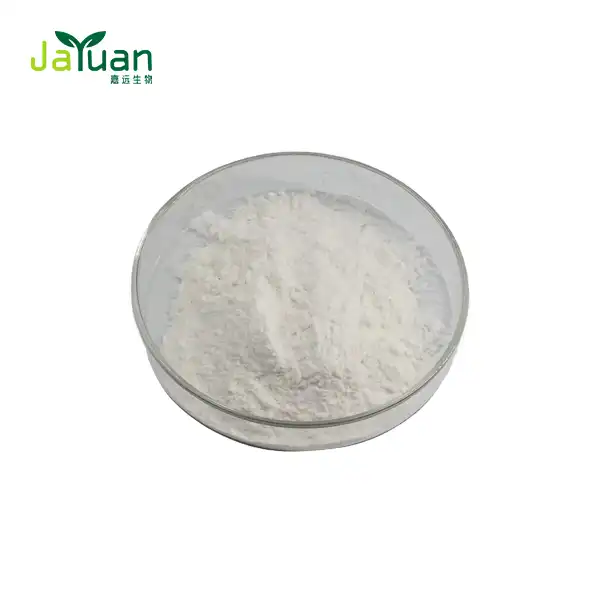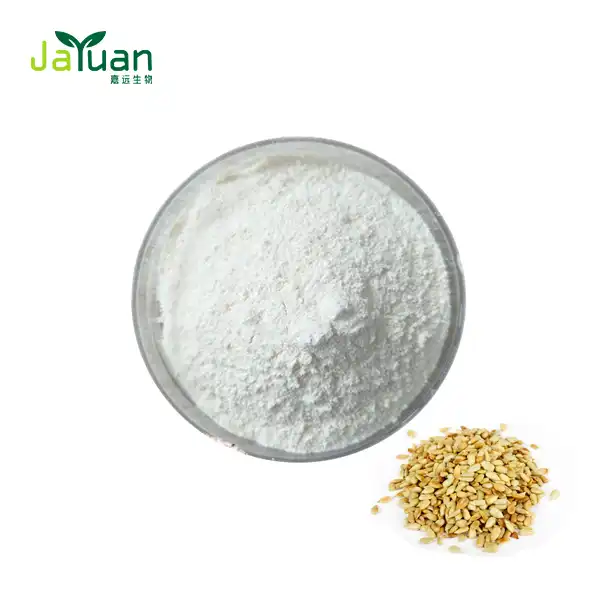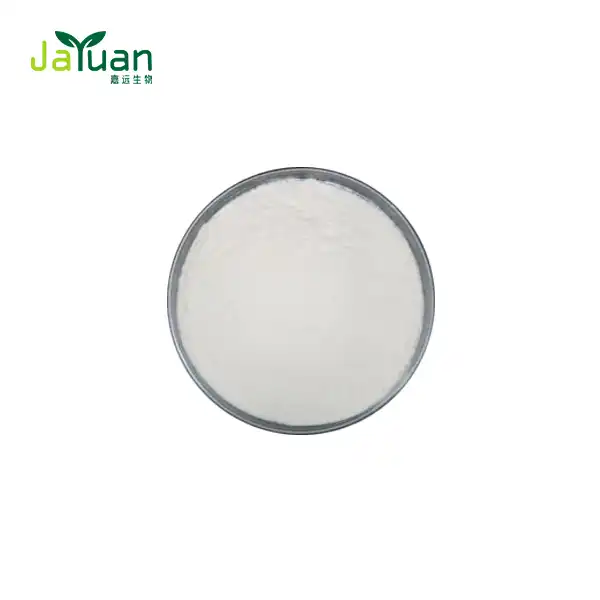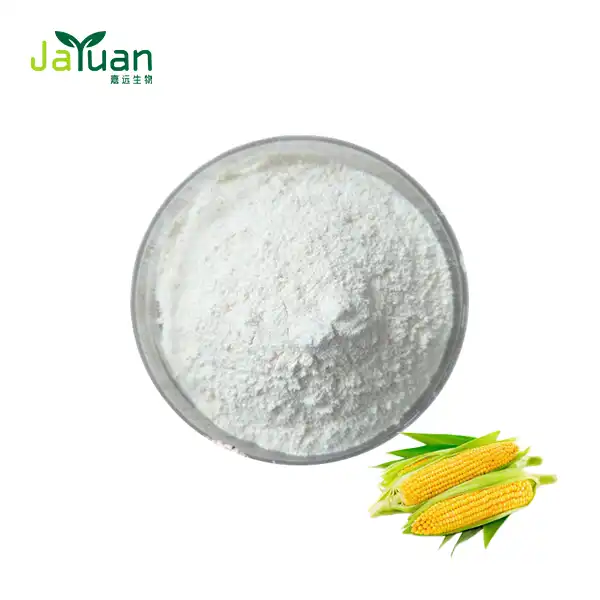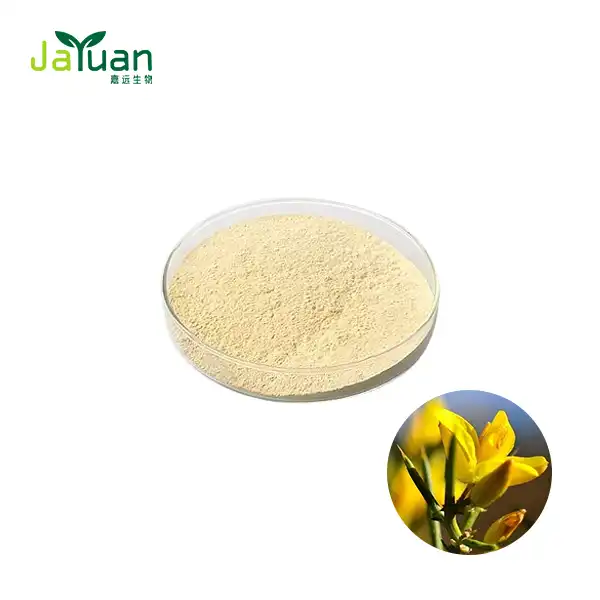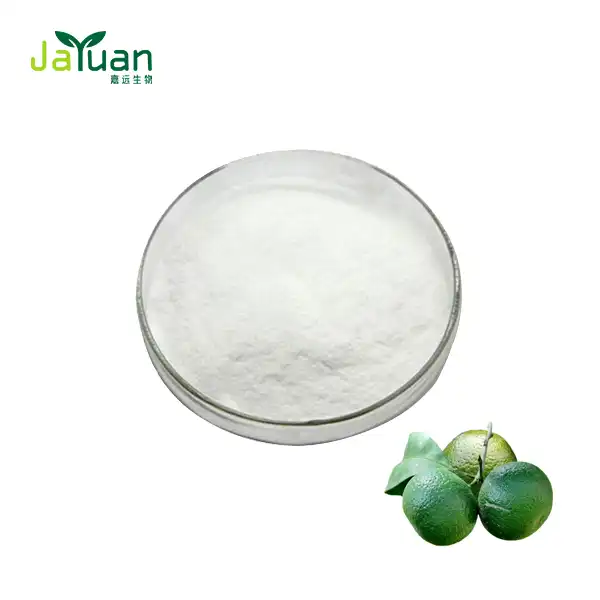What are the applications of abalone peptides in cosmeceuticals?
The world of cosmeceuticals is constantly evolving, with innovative ingredients making their way into our skincare routines. One such ingredient that has been gaining traction in recent years is abalone peptide. Derived from the protein-rich flesh of abalone, a type of sea snail, these peptides have shown remarkable potential in various cosmetic applications. This article delves into the fascinating world of abalone peptides and their burgeoning role in the cosmeceutical industry.

Abalone peptides in anti-aging serums and creams
As we age, our skin undergoes various changes, including loss of elasticity, formation of wrinkles, and decreased hydration. Abalone peptides have emerged as a promising ingredient in combating these signs of aging, making them a valuable addition to anti-aging serums and creams.
One of the key benefits of abalone peptides is their ability to stimulate collagen production. Collagen is a crucial protein that gives our skin its structure and firmness. As we age, collagen production naturally decreases, leading to sagging skin and the formation of wrinkles. Abalone peptide powder, when incorporated into skincare formulations, can help boost collagen synthesis, resulting in firmer, more youthful-looking skin.
Moreover, abalone peptides have shown remarkable moisturizing properties. They help enhance the skin's natural moisture barrier, preventing water loss and keeping the skin hydrated. This is particularly beneficial for mature skin, which tends to become drier with age. By improving skin hydration, abalone peptides can help reduce the appearance of fine lines and wrinkles, giving the skin a plumper, more radiant appearance.
Another interesting aspect of abalone peptides is their antioxidant properties. These peptides can help protect the skin from oxidative stress caused by free radicals, which are known to accelerate the aging process. By neutralizing these harmful molecules, abalone peptides contribute to maintaining the skin's overall health and youthful appearance.
In anti-aging serums, abalone peptides are often combined with other potent ingredients like hyaluronic acid, vitamin C, or retinol to create comprehensive anti-aging formulations. These combinations can address multiple signs of aging simultaneously, offering a more holistic approach to skincare.
How cosmetic brands formulate with abalone peptides
The incorporation of abalone peptides into cosmetic formulations requires careful consideration and expertise. Cosmetic brands are increasingly recognizing the potential of these marine-derived peptides and are finding innovative ways to harness their benefits in their products.
One of the primary considerations when formulating with abalone peptides is stability. Peptides can be delicate molecules, and their efficacy can be compromised if not properly stabilized in the formulation. Cosmetic chemists often use advanced encapsulation techniques to protect the peptides and ensure they remain active until they reach the target skin cells.
The concentration of abalone peptides in a formulation is another crucial factor. While higher concentrations might seem more effective, it's essential to find the right balance. Too high a concentration could potentially irritate the skin, while too low might not provide noticeable benefits. Cosmetic brands often conduct extensive testing to determine the optimal concentration that delivers results without causing adverse reactions.
Texture and feel are also important considerations when formulating with abalone peptides. Consumers expect their skincare products to have a pleasant texture and absorb well into the skin. Formulators work on creating lightweight yet effective formulations that incorporate abalone peptides without compromising the sensory experience.
Many brands are also focusing on creating synergistic formulations that combine abalone peptides with other complementary ingredients. For instance, combining abalone peptides with hyaluronic acid can enhance the overall hydrating effect of the product. Similarly, pairing them with antioxidants like vitamin C can boost their protective properties against environmental stressors.
The pH of the formulation is another critical factor. Peptides generally work best in slightly acidic environments, similar to the skin's natural pH. Formulators need to ensure that the final product maintains a pH that allows the abalone peptides to function optimally while still being gentle on the skin.
Delivery systems play a crucial role in the efficacy of abalone peptide formulations. Advanced delivery systems like liposomes or nanoparticles can help the peptides penetrate deeper into the skin, enhancing their effectiveness. Some brands are investing in cutting-edge technologies to improve the bioavailability of abalone peptides in their products.
Lastly, cosmetic brands are increasingly focusing on the sourcing and sustainability of their ingredients. With growing consumer awareness about environmental issues, many brands are ensuring that their abalone peptides are sourced responsibly, often opting for lab-created versions that don't impact wild abalone populations.

Future trends: Abalone peptides in sustainable cosmeceuticals
As the cosmeceutical industry continues to evolve, sustainability is becoming an increasingly important factor. Abalone peptides are well-positioned to play a significant role in this shift towards more sustainable and eco-friendly skincare solutions.
One of the emerging trends is the development of bio-engineered abalone peptides. Instead of sourcing peptides directly from abalones, which could potentially impact wild populations, scientists are working on creating synthetic versions that mimic the beneficial properties of natural abalone peptides. These lab-created peptides offer several advantages: they're more sustainable, can be produced in larger quantities, and offer consistent quality.
Another exciting development is the exploration of abalone peptides in combination with other marine-derived ingredients. The ocean is a vast source of bioactive compounds, and researchers are investigating how abalone peptides can work synergistically with other marine extracts to create potent, multi-functional skincare formulations. This could lead to the development of comprehensive "marine complexes" that offer a wide range of skin benefits.
The concept of personalized skincare is gaining traction, and abalone peptides could play a role in this trend. As our understanding of skin biology and peptide interactions deepens, we might see the development of customized abalone peptide formulations tailored to individual skin types and concerns. This could involve using specific peptide sequences or combinations that are most effective for particular skin issues.
Sustainability in packaging is another area where we're likely to see innovation. Brands using abalone peptides in their formulations are increasingly looking at eco-friendly packaging solutions. This could include biodegradable containers, refillable systems, or even edible packaging for certain types of products. The goal is to minimize environmental impact while still maintaining product efficacy and safety.
There's also growing interest in the potential of abalone peptides in "inside-out" beauty approaches. While topical application remains the primary mode of use, researchers are exploring the potential benefits of ingesting abalone peptides as part of a holistic skincare regimen. This could lead to the development of nutraceuticals or functional foods that complement topical abalone peptide products.
As technology advances, we might see the integration of abalone peptides into smart skincare devices. For instance, imagine a device that could analyze your skin's needs in real-time and dispense a custom-blended serum containing the optimal concentration of abalone peptides for your skin at that moment.
The rise of clean beauty is influencing formulations across the cosmetics industry, and abalone peptide products are no exception. We're likely to see more "clean" formulations that combine abalone peptides with other natural, minimally processed ingredients. These products will cater to consumers who are seeking effective yet gentle and environmentally conscious skincare solutions.
Lastly, as research into abalone peptides continues, we may discover new applications beyond anti-aging. For instance, preliminary studies suggest that certain peptides derived from abalone might have soothing properties, opening up possibilities for their use in products targeting sensitive or irritated skin.
The future of abalone peptides in cosmeceuticals is bright and full of potential. As we continue to unravel the mysteries of these marine-derived molecules, we can expect to see increasingly sophisticated and effective skincare solutions that harness the power of the sea while respecting our planet's delicate ecosystems.
Are you interested in incorporating abalone peptide into your cosmeceutical formulations? At Jayuan Bio, we specialize in high-quality, sustainably sourced marine ingredients. Our team of experts can help you develop innovative, effective skincare solutions using the latest in peptide technology. Contact us today at sales@jayuanbio.com, sales1@jayuanbio.com to learn more about how abalone peptides can elevate your product line.
References
1. Kim, S. K., & Wijesekara, I. (2010). Development and biological activities of marine-derived bioactive peptides: A review. Journal of Functional Foods, 2(1), 1-9.
2. Wang, L., An, X., Yang, F., Xin, Z., Zhao, L., & Hu, Q. (2008). Isolation and characterisation of collagens from the skin, scale and bone of deep-sea redfish (Sebastes mentella). Food Chemistry, 108(2), 616-623.
3. Ngo, D. H., Vo, T. S., Ngo, D. N., Wijesekara, I., & Kim, S. K. (2012). Biological activities and potential health benefits of bioactive peptides derived from marine organisms. International Journal of Biological Macromolecules, 51(4), 378-383.
4. Choi, J. H., Kim, K. T., & Kim, S. M. (2015). Biofunctional properties of enzymatic hydrolysates from shellfish processing byproducts. Food Science and Biotechnology, 24(5), 1947-1953.
5. Senevirathne, M., & Kim, S. K. (2012). Development of bioactive peptides from fish proteins and their health promoting ability. Advances in Food and Nutrition Research, 65, 235-248.
6. Zhang, Y., Duan, X., & Zhuang, Y. (2012). Purification and characterization of novel antioxidant peptides from enzymatic hydrolysates of tilapia (Oreochromis niloticus) skin gelatin. Peptides, 38(1), 13-21.

